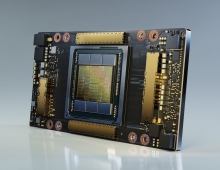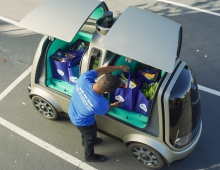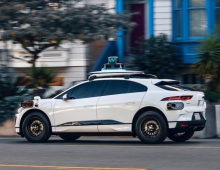
Waymo Uses AI to Turn Self-driving Cars from Science Fiction into Reality
At Google I/O, Google's annual developer conference, Waymo's engineers shared details on how Waymo is using artificial intelligence (AI) to make fully self-driving cars a reality.
AI and machine learning (ML) have played a critical role in moving us closer to our goal of bringing self-driving technology to everyone, everywhere.
Google's AI researchers have helped give Waymo a jump-start on the road to self-driving cars. For example, as deep learning began to take off, Waymo's self-driving engineers worked side-by-side with the Google Brain team to apply deep nets to Waymo's pedestrian detection system.
Fast forward to 2018, today, Waymo is the only company in the world with a fleet of truly autonomous cars on public roads.
While perception is the most mature area for deep learning, Waymo also use deep nets for everything from prediction to planning to mapping and simulation. With machine learning, Waymo's cars can navigate difficult situations; maneuvering construction zones, yielding to emergency vehicles, and giving room to cars that are parallel parking. Waymo has trained its ML models using lots of different examples.
Waymo uses ML in nearly every part of its self-driving system, including perception, prediction, planning, and mapping.
Infrastructure plays a key role in training and testing ML models. Waymo uses the TensorFlow ecosystem and Google's data centers - including TPUs - to train its neural networks. Waymo also tests its ML models in simulation, driving the equivalent of 25,000 cars all day, every day. With this training and testing cycle, Waymo can improve its ML models, and quickly deploy the latest nets on the self-driving cars.
Driving in heavy rain or snow can be a tough task for self-driving cars and people alike, in part because visibility is limited. Raindrops and snowflakes can create a lot of noise in sensor data for a self-driving car. Machine learning helps us filter out that noise and correctly identify pedestrians, vehicles and more.





















